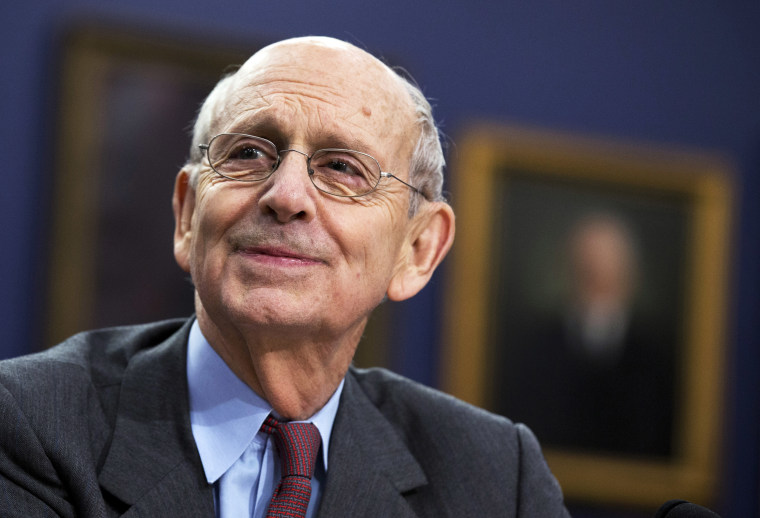Around this time seven years ago, Ruth Bader Ginsburg was well aware of the chatter in Democratic circles about her possible retirement. She was 81 at the time; she'd gone through two bouts with cancer; and she had a heart condition. There was a Democratic majority in the Senate, and if the legendary justice stepped down, then-President Barack Obama was in a position to name a younger progressive jurist to take her place.
RBG balked, describing talk of her retirement as "misguided." It wasn't long before when Ginsburg added, in reference to the 2016 election cycle, "I think it's going to be another Democratic president. The Democrats do fine in presidential elections."
Donald Trump was elected soon after. He and Senate Republicans added three conservatives to the high court, creating the most far-right Supreme Court in modern history. Ginsburg gambled and lost.
With this in mind, after President Joe Biden's victory in the fall, many were relieved by the new opportunity: 82-year-old Justice Stephen Breyer, a Clinton appointee who's served for nearly three decades, could retire at a time when there's a Democratic White House and a narrow Democratic majority in the Senate.
The trouble, as the New York Times noted this week, is that Breyer doesn't seem especially interested in stepping aside.
Justice Breyer has been particularly adamant that politics plays no role in judges' work, and he recently suggested that it should also not figure into their decisions about when to retire. "My experience of more than 30 years as a judge has shown me that, once men and women take the judicial oath, they take the oath to heart," he said last month in a lecture at Harvard Law School. "They are loyal to the rule of law, not to the political party that helped to secure their appointment."
Though this isn't always a sure-fire guide, Breyer has also hired law clerks for the next term, reinforcing suspicions that the center-left justice doesn't intend to exit the building anytime soon.
It's possible that Breyer is truly indifferent to political considerations and is willfully ignorant of the radicalization of Republican politics. It's also possible that the justice is at least passively aware of the circumstances, but assumes that there will be a Democratic president for the next three-and-a-half years, so he need not rush any retirement decisions.
But such an assumption is tough to defend. As a Washington Post analysis noted today, the Democrats' current advantage in the Senate is so precarious, it could disappear in the event of "one death, one scandal, one party switch or one other unforeseen event."
What's more, the odds of Democrats maintaining their majority in the chamber next year are less than good -- and their 2024 odds are worse.
If Breyer assumes that a Republican-led Senate would gladly confirm a Biden nominee for the Supreme Court, I suspect Merrick Garland would happily take the justice's call. (Historical trivia: it's been 126 years since a Republican-led Senate confirmed a Democratic president's pick for the high court.)
We're talking about conditions in which GOP senators kept a Supreme Court seat vacant for 11 months in 2016 for purely partisan reasons, with some Senate Republicans suggesting they'd keep the seat empty indefinitely until their party controlled the White House again.
Breyer has a responsibility to at least recognize these developments and weigh his legacy accordingly.

